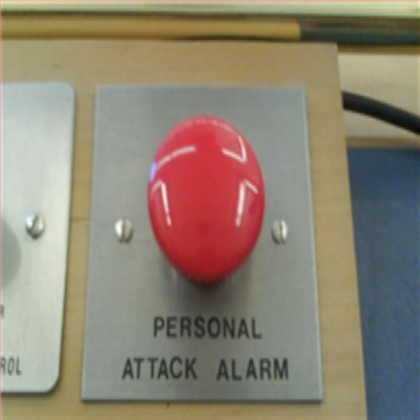Growing up, I always knew that writing would be my lifeblood. So imagine how happy I was to land a full-time editorial position with a niche and fun website. The first few months felt like a hazy dream, I was doing something that I loved, mingled with major influencers, and attended some of the best events frequently.
It was surprising (even to myself), that I constantly dreamt about leaving the editorial life, only after a year. I remembered turning to everyone I knew and asking them why I felt very anxious and sad to be doing something that I thought I loved. By societal standards, I’ve struck gold!
Do I regret leaving my dream job?
YES, I did. But not for the reasons you’re thinking of. Find out why below:
1. I didn’t take the time to identify what was wrong

This may come as a shock to some but it took the resignation of one of my close colleagues to give me the courage to resign my job. I knew that I was unhappy with the job, but didn’t take the time to identify the sources of my “misery”.
It wasn’t until I started freelancing from home that I realised what I didn’t like about my previous workplace. As expected, this process was painful and time-consuming but it made me realise the improvements I wanted from my next job.
*Pro-tip: Not sure what you want from your new job? Our article, “The Kids Are Not Alright: Why Millennial Employees Lose Their Motivation”, may be helpful.
2. I didn’t take the opportunity to attend company sponsored courses

Thankfully, I managed to pick up some Adobe Photoshop, Premiere Pro, and basic HTML skills at my last job. However, I do regret not taking the time to do any company sponsored courses to equip myself with additional skills.
By not doing this, I couldn’t find other skills that I could potentially be interested in, which is crucial for someone looking to switch careers. So, if you’re in the same position as I am, then take the time to find yourself at your current job before leaving. Attend as many courses and talks that the company offers as you can.
3. I didn’t want to step outside of my comfort zone

Part of the reason why I left my previous job as a journalist/content writer was that I hated meeting new people and networking with them. As an introvert, I found it challenging to talk to new people and spent most of my time at events, hiding in a corner, away from the hustle and bustle of the event.
It wasn’t until I left my job that I realised how valuable networking was. Some of my old colleagues who left got jobs in related fields immediately but it took me months to find and land my next position.
This tip is for my introverted readers! Take the time to step out of your comfort zone and network with people - it is a great way to land inside information from different companies, and a good way to get people to vouch for you, should you choose to switch jobs in the future.
4. I took every single criticism personally

Writing is tough work. Writers generally put their heart and soul into their work, only for it to be judged, cut out, and edited heavily, to make it more palatable to the audience. It’s funny, but numbers still matter for such a creative job.
I was lucky to have a great editor and mentor to look up to. However, since it was my first writing position, I found it hard to accept constructive criticism, most of the time. As such, my writings remained stagnant and robotic. I only learnt to swallow my pride and take constructive criticism, after a year at the job. As a result, I saw an increase in my readership numbers and soon, the usually mundane daily tasks became a bit more fun and challenging.
*Pro-tip: It is hard, and yes it stings, but always remember that the criticisms you receive from your superiors is for you to churn out better work.
5. I didn’t ask for a promotion or fight for a higher starting salary

One of the many reasons that contributed to my resignation was the money I was being paid and the lack of promotion. And no, it wasn’t because the managers there didn’t think I deserved one. It was because I was too shy to ask for a promotion, and for a pay increment. Instead, I chose to suffer in silence, and the feeling of anger and resentment towards the job festered within me.
*Pro-tip: If you believe that you’re ready to take on more responsibilities, or for a promotion, let your manager know. The worst they’ll do is say no! If that happens, ask them nicely, what you should do to prove that you’re worthy of a promotion and aim to change your ways accordingly.
6. I didn’t manage my work-life balance properly

Despite its flaws, I had a great group of tight-knit colleagues, and we’d spend some of our time outside of work together. Looking back, I realised that the job I was at wasn’t as bad as I thought it was.
Part of the problem was that I was addicted to my job. I wanted to strike off as many tasks as possible to make the next work day easier, only to be piled with more and more tasks. I mean, you can consider yourself a workaholic when you spend some of your nights at home, working until 12 in the morning right?
*Pro-tip: Instead of creating a list of tasks for the day, I learnt to set a list of tasks that should be completed within the week instead. If you’re dealing with client work, or pressing projects, it’s best to spend the first half of your day tackling it - instead of other less important (but equally time-consuming) tasks. That way, you can go home and relax, without that nagging feeling, that you’ve forgotten to do something at work….
At the end of the day, I don’t regret leaving my job for something that aligns more with my interests, I do regret not taking the opportunity to learn as much as I can from my previous position.
The takeaway here is pretty straightforward, absorb as much as you can and try not to limit yourself (and your expectations). You’re only hurting yourself, and your chances of landing other awesome jobs.
Finding your dream job is easy. But finding a great job can be challenging. If you're on the lookout for an awesome job opportunity (i.e. full time, part time, temp), drop us your resume and we'll link you to an exciting new position!
Liked this article? Check out these related pieces:
